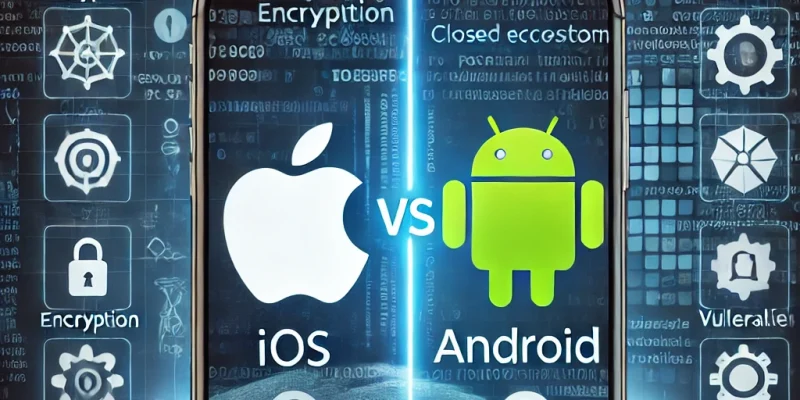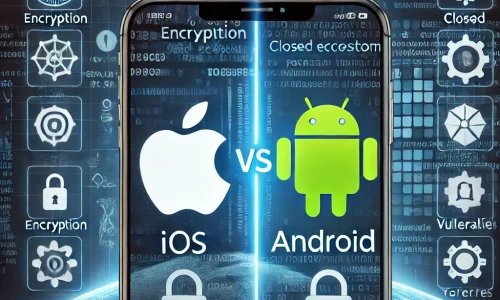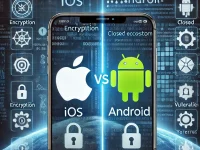The debate over whether Android or iOS is more secure has been ongoing for years. Both operating systems have their strengths and weaknesses when it comes to security, and the choice often depends on user preferences, priorities, and the specific nature of the security threat.
iOS Security:
Apple’s iOS is often considered more secure due to its closed ecosystem and stringent app review process. The following factors contribute to iOS security:
- Closed Ecosystem: Apple’s tightly controlled ecosystem makes it more difficult for malware to enter, as apps are only available through the Apple App Store, where they undergo rigorous vetting.
- Regular Software Updates: iOS devices receive timely and consistent updates, ensuring that vulnerabilities are patched quickly. This minimizes the window of opportunity for hackers to exploit security flaws.
- App Sandboxing: iOS apps are isolated from each other in what’s called a sandbox, meaning if one app is compromised, it does not affect the rest of the system or data.
- Encryption: iPhones have end-to-end encryption enabled by default, ensuring that user data is protected.
Android Security:
Android, being an open-source operating system, provides more flexibility, but this also introduces some security risks:
- App Store Variety: While Google Play Store enforces security policies, third-party app stores and sideloading apps increase the risk of encountering malware, which is less regulated compared to iOS.
- Fragmentation: Android’s fragmentation means that not all devices receive updates simultaneously, or even at all. This can leave older devices vulnerable to exploits long after they’ve been discovered.
- Customization and Flexibility: While Android allows greater customization, this flexibility can be a double-edged sword. Users may inadvertently compromise their devices by installing unauthorized software or rooting their phones.
- Google’s Security Measures: Google has introduced several security features, such as Google Play Protect and regular security patches, but the open nature of Android means these protections are less uniformly applied across devices.
Conclusion:
In general, iOS is regarded as more secure than Android, primarily due to its closed ecosystem, faster and more consistent updates, and robust encryption. However, Android’s security can be improved through careful app selection, device management, and regular updates. Ultimately, the security of either system depends largely on user behavior and how diligently the device is maintained. For users who prioritize security, iOS may be the safer choice, but with the right precautions, Android can also be secure.



